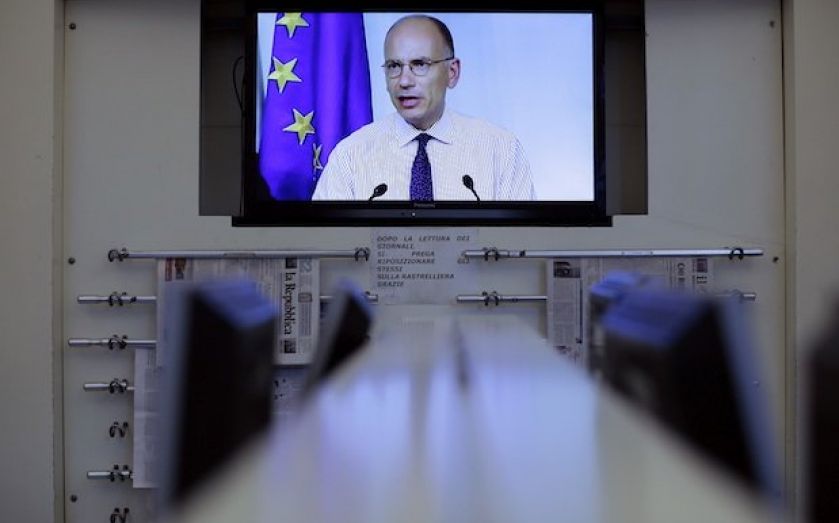Italy’s government may survive but vital reform looks ever more unlikely

IT WAS always a matter of when, not if, Silvio Berlusconi would pull the plug on Italy’s coalition government – especially since the former Prime Minister’s definitive tax fraud conviction in August. The moment came at the weekend, when Berlusconi invited all ministers from his party to step down. Said, done – and Italy now finds itself in the middle of a new political crisis.
The official reason for Berlusconi’s move is the Italian government’s failure to scrap a VAT increase that kicks in today. However, it would be naïve to miss the correlation with Berlusconi’s seemingly imminent expulsion from parliament as a result of his recent conviction.
So is this the end of the line for Italian Prime Minister Enrico Letta? Piano, piano. Not so fast, as an Italian would say. One thing is certain, however. Looking at the bigger picture of Italy’s political future, all possible scenarios look less than ideal at the moment.
Letta is likely to face a vote of confidence in both chambers of the Italian parliament tomorrow. The key ballot would be the one in the Senate, the upper chamber, where the Italian Prime Minister’s centre-left Democratic Party does not command a majority.
It would be tough, but not unrealistic for Letta to survive this vote. He would need around 20 senators from either Berlusconi’s party or Beppe Grillo’s Five-Star Movement to break ranks and support him. Politicians from both these parties have been hinting at possible defections, meaning that Letta would have a chance of victory – which would allow him to stay in power with a different, albeit thinner, parliamentary majority.
However, this would be far from a permanent fix. If Letta managed to muster a new majority in parliament, he could try to address a couple of urgent issues (a reform of Italy’s controversial electoral law and the budget for next year are the most obvious), and perhaps plan for a return to the polls at some point in 2014 – only one year after the last elections.
But if Letta were to lose the confidence vote, he would have little choice but to resign. The ball would then be back in Italian President Giorgio Napolitano’s court. He would have to make a decision: task Letta himself or someone else with forming a new government, or dissolve parliament and call snap elections.
The problems associated with the latter option are obvious. New elections in Italy can take place no fewer than 45 days after parliament is dissolved. In the meantime, Letta’s government would stay on as a caretaker, but with very limited powers. Most importantly, voting again with the existing electoral law may well lead to another inconclusive outcome – putting Italy at risk of facing a few more months of political paralysis at a time when the country can least afford it.
Sure enough, irrespective of how any confidence vote may go, the medium-term political stability Italy needs to get its act together is likely to remain elusive. This, in itself, is not great news for the country – or the Eurozone as a whole.
Vincenzo Scarpetta is a political analyst at Open Europe.